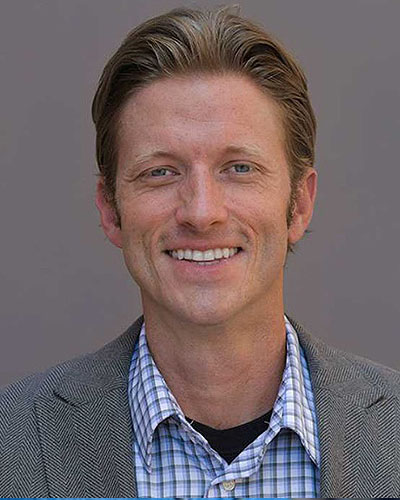Abraham Gibson, Ph.D.
Associate Professor, Assistant Chair, History

Contact
- MH 4.04.28
- abraham.gibson@utsa.edu
- Curriculum Vitae
Bio
Summer 2024 Office Hours: TBD.
Abraham Gibson, Associate Professor, teaches courses on the history of science, technology, and the environment. His first book, Feral Animals in the American South (Cambridge University Press, 2016), examines the social, cultural, and evolutionary consequences of animal domestication throughout southern history. He has published widely on a variety of topics at the intersection of science, technology, and society, and he helped create the Digital History Working Group at the Consortium for the History of Science, Technology, and Medicine. His work has appeared in many outlets, including Isis, Environmental History, and the Debates in Digital Humanities series, and he has earned research fellowships from the Smithsonian Institution, the National Science Foundation, the U. S. Department of Education, and Virginia Humanities.
Research Interests
- History of Science
- Technology and Society
- Environmental History
- Southern History
- Digital History
Publications
- Feral Animals in the American South: An Evolutionary History. Cambridge University Press, 2016 (paperback, 2018).
- “Of Coding and Quality: A Tale about Computational Humanities,” with Julia Damerow and Manfred Laubichler. In Computational Humanities, edited by Jessica Marie Johnson, David Mimno, and Lauren Tilton (Minneapolis, MN: University of Minnesota Press, 2023).
- “Digital Humanities in the Deepfake Era,” in Debates in the Digital Humanities 2023, edited by Matthew K. Gold and Lauren F. Klein (University of Minnesota Press, 2023).
- “War Horses: Equine Perspectives on the Confederacy,” in Animal Histories of the Civil War Era, edited by Earl J. Hess (Baton Rouge, LA: Louisiana State University Press, 2021).
- “Harvesting Hogzillas: Feral Pigs and the Engineering Ideal,” in Nature Remade: Engineering Life from Gene Drives to Gaia, edited by Luis Campos, Michael R. Dietrich, Tiago Saraiva, and Chris Young (Chicago, IL: University of Chicago Press, 2021).
- “Keeping It Real: Historians in the Deepfake Era,” AHA Perspectives Daily (May 17, 2021).
- “The History of Science and the Science of History: Computational Methods, Algorithms, and the Future of the Field,” with Cindy Ermus. Isis 110 (September 2019): 555-566.
- “Computational History and Philosophy of Science,” co-edited with Manfred Laubichler and Jane Maienschein. Isis 110 (September 2019): 497-501.
- “The Moonshine Capital of the World: A Visual History of Untaxed Whiskey in Franklin County, Virginia,” Environmental History 24 (July 2019): 584-596.
- “Biology in the Marvel Cinematic Universe,” Review essay in Journal of the History of Biology 52 (June 2019): 365-369.
- “Data Science and the 3-point Revolution,” Age of Revolutions (February 25, 2019).
- “Swamp Things: Invasive Species as Environmental Disasters,” with Cindy Ermus. In Environmental Disaster in the Gulf South: Two Centuries of Catastrophe, Risk, and Resilience, edited by Cindy Ermus (Baton Rouge, LA: LSU Press, 2018), 103-130.
- “Path to the Present,” in Cambridge Handbook on Evolutionary Ethics, edited by Michael Ruse and Robert J. Richards (New York, NY: Cambridge University Press, 2017), 72-86.
- “Beasts of Burden: Feral Burros in the American West,” in The Historical Animal, edited by Susan Nance (Syracuse, NY: Syracuse University Press, 2015), 38-53.
- “Sociobiology and Evolutionary Psychology,” with Michael Ruse. In A Companion to the History of American Science, edited by Georgina Montgomery and Mark Largent (Hoboken, NJ: Wiley, 2015), 252-262.
- “Roots of Multilevel Selection: Concepts of Biological Individuality in the Early Twentieth Century,” with Christina L. Kwapich and Martha Lang. History and Philosophy of the Life Sciences 35 (2013): 505-532.
- “Edward O. Wilson and the Organicist Tradition,” Journal of the History of Biology 46 (2013): 599-630.
- “American Gibraltar: Key West during World War II,” Florida Historical Quarterly 90 (2012): 393-425.


